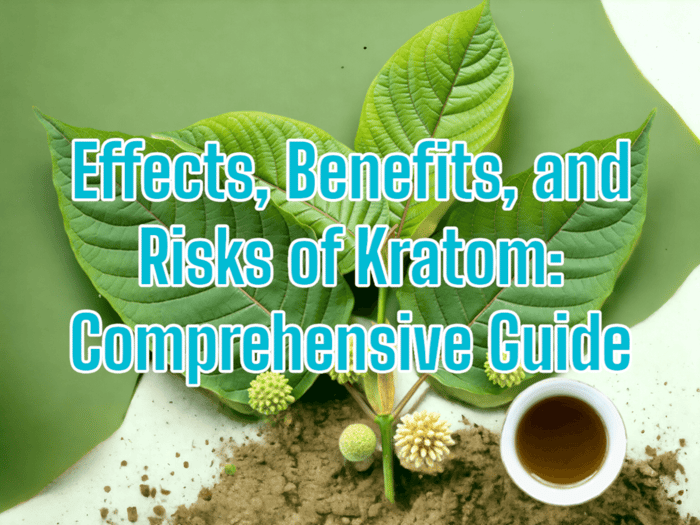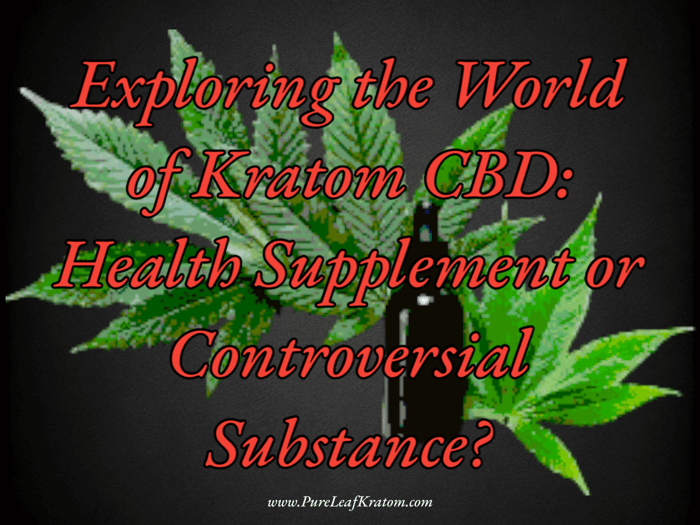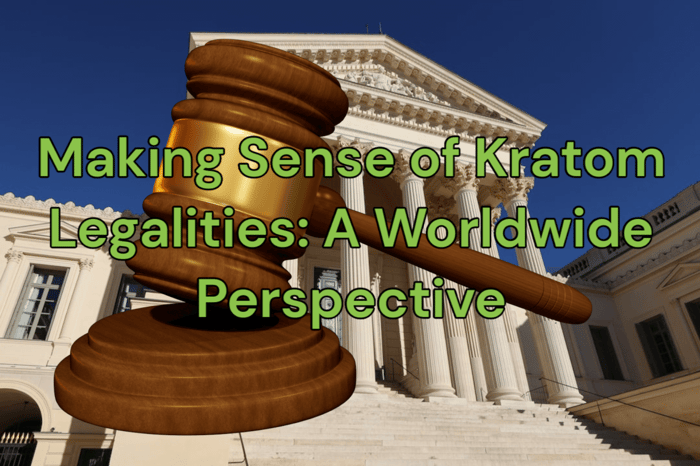
Making Sense of Kratom Legalities: A Worldwide Perspective
Introduction to Kratom and its Legal Status Globally
Kratom Legal: Emerging in international jurisprudence, this leafy tree, Mitragyna speciosa, hails from Southeast Asia, renowned for therapeutic properties. Its leaves contain Mitragynine and 7-Hydroxymitragynine, contributing to both fame and legal debate.
A Dive into Kratom's Past: Its Historical Use and Cultural Significance
Kratom's journey dates back to traditional times, where it was predominantly used by laborers in a bid to combat fatigue and improve productivity. With time, this so-called ‘miracle herb’ began gaining international attention, finding its way into Western markets, where its popularity rose exponentially.
Unraveling the Secrets of Kratom: Understanding Mitragynine and 7-Hydroxymitragynine
Whilst kratom sources a handful of alkaloids, the two most commonly recognized are Mitragynine and 7-Hydroxymitragynine. Both of these psychoactive components have been accredited for the potential opioid-like effects, yet they are also at the center of most legal battles concerning kratom.
Global Kratom Awakening: Tracing the Trends
Today, the global popularity of Kratom has brought it under the scrutiny of international laws, leading to varied legislation around its possession, distribution, and usage. These legal divergences can be traced back to the lack of consensus on the medicinal benefits or potential harm posed by Kratom usage.
The Scales of Justice: Kratom Legal Judgement
A line in the global sand is drawn concerning the legalities surrounding Kratom. Debates center around the plant's addictive nature and potential medical benefits, which can be viewed as either a danger or a potential therapeutic tool. While some nations fully support its legality, viewing it as a risk-free substance, others have imposed strict regulations or complete bans, categorizing it as a potential threat to public health.
Global Perspectives on the Legality of Kratom: Patterns and Trends
The legal landscape of Kratom varies tremendously across the globe, reflecting the ongoing controversy regarding its potential benefits and risks. Countries like the United States and those in the European Union have an intricate mesh of regional and national laws, leading to variations in legal status among and within these nations. Meanwhile, in countries like Australia and Russia, Kratom is unconditionally banned. It's a paradox to note that, in the indigenous Southeast Asian countries, from where Kratom originates, the plant is illegal in various parts despite its traditional and cultural roots.
Raw Kratom Capsules Green Maeng Da
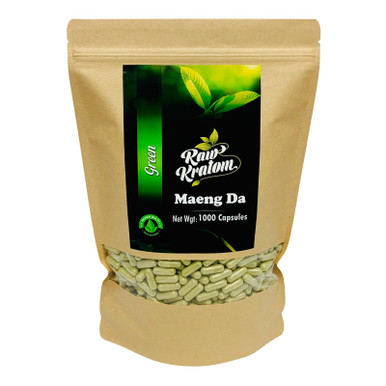
$64.95
Raw Kratom Capsules Green Maeng Da Raw Kratom Capsules Green Maeng Da showcase the genuine essence of Southeast Asian harvested kratom leaf powder in its...… read more
Out of Stock
The Complex Kratom Legalities in the United States: An In-depth Look at Federal, State, and County Laws
Understanding the diverse legal statuses of Kratom across the United States necessitates an inspection of federal legislation and agencies, as well as unique state and county policies.
The Role of the DEA and FDA: Federal Laws Governing Kratom Use, Distribution, and Marketing
In the United States, Kratom is not regulated under the Controlled Substances Act (CSA), but the Drug Enforcement Administration (DEA) and the Food and Drug Administration (FDA) have repeatedly cast scrutiny on its safety profile. While the DEA considered scheduling Kratom in 2016, public backlash led to a retraction of the proposal. Presently, the FDA classifies it as a "drug of concern". Despite not being federally controlled, the FDA discourages the use, distribution, and marketing of Kratom for medical purposes without official approval.
A Comprehensive Breakdown of State-Specific Regulations
States categorically prohibiting Kratom Legal Status: The reasons and criticisms
Regardless of its unregulated status at the federal level, several states have banned Kratom, including Alabama, Arkansas, Indiana, Rhode Island, Vermont, and Wisconsin. These bans are typically predicated on concerns about safety, potential for abuse, and a lack of substantial evidence to substantiate medicinal claims. However, there is significant criticism and ongoing efforts to repeal these bans, due to arguments for personal liberty, potential therapeutic benefits, and lack of conclusive research.
States with nuanced regulations: Age restrictions, labelling requirements, and other regulations
Many states veer towards a more regulated model, permitting Kratom use with various restrictions. States such as Tennessee, New Hampshire, and Illinois, impose age restrictions, mainly allowing usage for individuals over the age of 18 or 21. These states, and others, also have labelling requirements or stipulations such as mandating the absence of synthetic alkaloids in the products. Kratom Consumer Protection Act has played a role in shaping these regulations across many states, which functions to ensure product safety and fair marketing practices when selling Kratom.
States with full Kratom legal status: Understanding their stance
Contrastingly, there's a group of states that provide full legal status to Kratom. This includes states like Nevada, Utah, and Arizona. The decision pivot on the belief that adults should be allowed to make informed decisions about their own health and wellbeing, in light of potential therapeutic potentials and a usually well-tolerated safety profile.
An Exploration into County-Level Restrictions and Liberties
Just as states have their own regulations, many counties also have unique laws regarding Kratom. There have been instances where Kratom is banned in specific counties despite being legal in the rest of the state, such as in Sarasota County in Florida and San Diego County in California. The disparity between county and state laws adds another layer to the complexity of Kratom legality in the United States.
Navigating the Intricacies of Kratom Legal Status in European Countries
In the global scene, the legal status of Kratom remains a complex landscape to navigate, and the European Union (EU) is no exception.
Understanding the Role of EU: Region-Wide Regulations on Kratom
In the EU, where 27 national governments operate under a cooperative economic and political entity, matters concerning public health often transcend national boundaries. Therefore, while the EU does not have direct, specific laws pertaining to Kratom, the bloc influences legislation through directives and regulations that apply across all member states. For substances with potential psychoactive properties like Kratom, the European Monitoring Centre for Drugs and Drug Addiction (EMCDDA) holds the role of monitoring and reporting on trends in the drug market. Yet, while the EMCDDA has reported on Kratom, it has stopped short of recommending region-wide legislation. This leaves the Kratom legal status ] varying between different EU nations.
An In-depth Look at Country-Specific Laws
The autonomy of each country within the EU leads to contrasting approaches toward Kratom legalities.
European Countries with a Complete Prohibition on Kratom: The Underpinning Reasons
In some countries like Denmark, Latvia, Lithuania, Poland, Romania, and Sweden, Kratom stands as a banned substance. This stance merges with a perceived view on potential for abuse, addictive properties, and the lack of comprehensive research into Kratom's benefits and risks. For instance, Sweden banned Kratom in 2011, citing concerns over the increasing number of incidents linked to the substance.
Countries where Kratom Falls under Specific Control Regulations
Other nations have chosen a more controlled approach. The United Kingdom, under the Psychoactive Substances Act (2016), classified Kratom as a psychoactive substance and hence made its production, distribution, and importation illegal. In countries such as Italy and Ireland, while not outlawed, Kratom is regulated, subjecting it to rules relating to possession, use, and distribution.
Nations where Kratom is Fully Legal: Their Rationale
Unlike the states previously mentioned, some European countries such as Belgium, Germany, and Spain have not positioned Kratom under any legal restriction, and its sale, possession, and use are fully legal. While there is a lack of explicit reasons behind this stance, it can be attributed to the recognition of individual freedom regarding personal health decisions and the lack of definitive scientific evidence demonstrating substantial risks or harms associated with Kratom use.
Club 13 Kratom Extract Gummies Variety Pack Squares
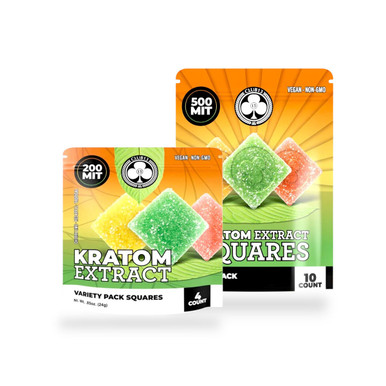
$19.75
Club 13 Kratom Extract Gummies Variety Pack Squares Introducing our Club 13 Kratom Extract Gummies Variety Pack Squares, a delightful and convenient way to incorporate...… read more
Detailed Examination of Kratom's Legal Status in Asian Countries
Asia is the origin of Kratom, specifically the tropical climates of Southeast Asia. Its tradition of use, primarily in its raw leaf form, has had a profound influence on local communities, but despite that, the legal status of Kratom throughout Asia is highly variable and subject to ongoing debates.
Back to the Roots: South-East Asia and the Origins of Kratom
Before we explore the intricacies of Kratom legal status in different Asian territories, it's essential to wind back time and trace the origins of Kratom. The plant Mitragyna speciosa, more commonly known as Kratom, is native to countries like Thailand, Indonesia, and Malaysia. Despite having a deep-rooted history in these regions, the legal stance on the plant differs vastly among them.
Concerns and Contradictions: The Legal Stance of Countries Where Kratom is Native
The legal panorama for Kratom in its native countries is riddled with concerns and contradictions. For instance, in Thailand, where Kratom was traditionally used by laborers for its stimulating effects, the plant was banned in 1943 due to concerns about potential abuse - an odd development given Kratom's cultural significance in Thailand. However, in a turn of events, the Thai government took steps to decriminalize Kratom in 2018, reflecting the shifting global viewpoint on drug policy.
Conversely, in Malaysia, another native home to Kratom, the law is less welcoming. The use of Kratom is prohibited under the Poisons Act 1952, leading to harsh penalties for possession or distribution. On the other hand, Indonesia, one of the world's most prominent Kratom exporters, allows its cultivation but prohibits its domestic consumption.
A Thorough Review of the Country-by-Country Legal Landscape
When it comes to other Asian countries, the legal stance on Kratom significantly varies. Some have adopted stringent regulations, while others permit its use with mild caveats.
Asian countries where Kratom is legal
Countries like South Korea, Israel, and Japan have no specific laws regulating Kratom, and it is generally legal to possess and distribute. However, given the unique regulatory environment, this legality may be subject to changes.
Countries with stringent regulations or outright prohibition on Kratom
- In the Philippines, the use and distribution of Kratom are prohibited under the Dangerous Drugs Act.
- As already noted, Malaysia has stringent laws against Kratom under the Poisons Act.
- In Singapore, Kratom falls under class A controlled drugs, and possession, distribution, or manufacturing can lead to severe penalties, including imprisonment and hefty fines.
With the fluctuating global viewpoint on drug policy, the legal landscape of Kratom across Asia remains in constant motion and, as such, it is imperative to stay updated with the local laws and regulations.
A Global Perspective: Where Kratom is Decriminalized, Prohibited, or Restricted
There is a multitude of intricate legal policies worldwide when it comes to Kratom regulation. From roles as a decriminalized substance, to pronounced prohibitions, and even legal restrictions, the world varies greatly in its stance on Kratom.
Decriminalization of Kratom: A Case Study
Canada offers an interesting case with regard to Kratom decriminalization. Without a federal ban or prohibition, the control of Kratom sits largely in the gray area of the law. The ambiguity surrounds the fact that while Kratom is legal to possess, it cannot be marketed as an edible product. The lack of regulation has sparked an interesting cultural shift, with many relying on Kratom for self-management of pain and opioid withdrawal, as well as enhancing their mental health and wellbeing.
Kratomade 100mg Kratom Extract Cherry Pomegranate Drink Mix

$9.59
Kratomade 100mg Kratom Extract Cherry Pomegranate Drink Mix Bold, fruity, and full of flavor - Kratomade's 100mg Kratom Extract Cherry Pomegranate Drink Mix brings a...… read more
Out of Stock
Prohibition of Kratom: In-Depth Discussion
A striking example of Kratom prohibition is its status in Australia, where it is placed under Schedule 9 of the Poisons Standard, classifying it as a prohibited substance. The legislation cites concerns for potential abuse and lack of accepted medicinal use. This ban severely restricts the import, possession, and local distribution of the plant, therefore curtailing its use within the country.
Legal Restrictions on Kratom: A Thorough Examination
New Zealand serves as a compelling case of Kratom restriction. Kratom is categorized under Schedule 1 of the Misuse of Drugs Act 1975, which implies that it may have potential therapeutic use, but the legislative restrictions make it controlled at all stages - from manufacture and supply to possession and use. This balanced approach indicates the country's attempt to leverage its potential medicinal value while being mindful of potential misuse and abuse.
As the field of Kratom legalities continues to evolve dynamically, a proactive understanding of future trajectories is crucial. Ongoing debates and potential legislative changes may induce a considerable shift in Kratom's legal status worldwide.
Current Debates and Pending Legislation: Potential Alters in the Legal Status of Kratom
Major stakeholders in the law-making, scientific and user communities are all partaking in shaping Kratom's legal future. They weigh the known and suspected risks of Kratom use, such as addiction and toxic effects, against its potential benefits for conditions including chronic pain and opioid dependency.
In the United States, for example, the Food and Drug Administration's vocal criticism of Kratom usage and concerns about toxicity, potential for abuse, and deficient quality control put continuous pressure on the legal boundaries surrounding this substance.
Predicting the Unpredictable: Possible Shifts in Kratom Laws Across the Globe
Changes in political climate, evolving scientific research, and shifts in public perception can significantly affect the direction of Kratom regulation. While attempting to predict such changes is challenging, experts and stakeholders make their best educated guesses based on current trends and historical patterns. Notably, there can be a tendency in some regions to implement stringent control measures, while others lean towards more permissive or nuanced regulatory frameworks.
Assessing the Potential Impact of Legislative Changes: The effect on the Kratom community worldwide
Changes in Kratom legislation will inevitably affect a broad community including growers, distributors, researchers, and consumers. It will alter the environment in which Kratom is produced, sold, studied, and consumed. With heightening restrictions, both the access to Kratom and the industries surrounding it may be adversely affected. On the other hand, a shift in legalization or decriminalization can provide a framework for informed, safe use; facilitate research; and improve overall quality control.
Despite the uncertainty, the future of Kratom's legal status appears to be an intriguing, maze-like interplay between science, law, and human experience. As more countries around the globe grapple with the complex challenges it presents, it's clear that the conversation surrounding Kratom legalities is just getting started.
Disclaimer
The products discussed here and any claims or suggestions made have not been evaluated by the Food and Drug Administration (FDA). This content is not intended to diagnose, treat, cure, or prevent any disease.
The information on this website is provided for general informational purposes only and should not be relied on as the sole basis for making decisions – we encourage consulting primary, qualified, more complete, or professional sources. Any reliance on the material on this site is at your own risk.
Information shared on this site may be updated at any time and may include information or data that are no longer current, accurate, or complete and is provided for your reference only. We are not obligated to update published content, and it is the reader’s responsibility to monitor any changes and to consult with primary, qualified, more complete, or professional sources.
We make no guarantees regarding the completeness, accuracy, or reliability of the information provided, nor do we warrant that any products, services, or materials offered will meet individual expectations. Use of this site and its content is at your own discretion and risk.


